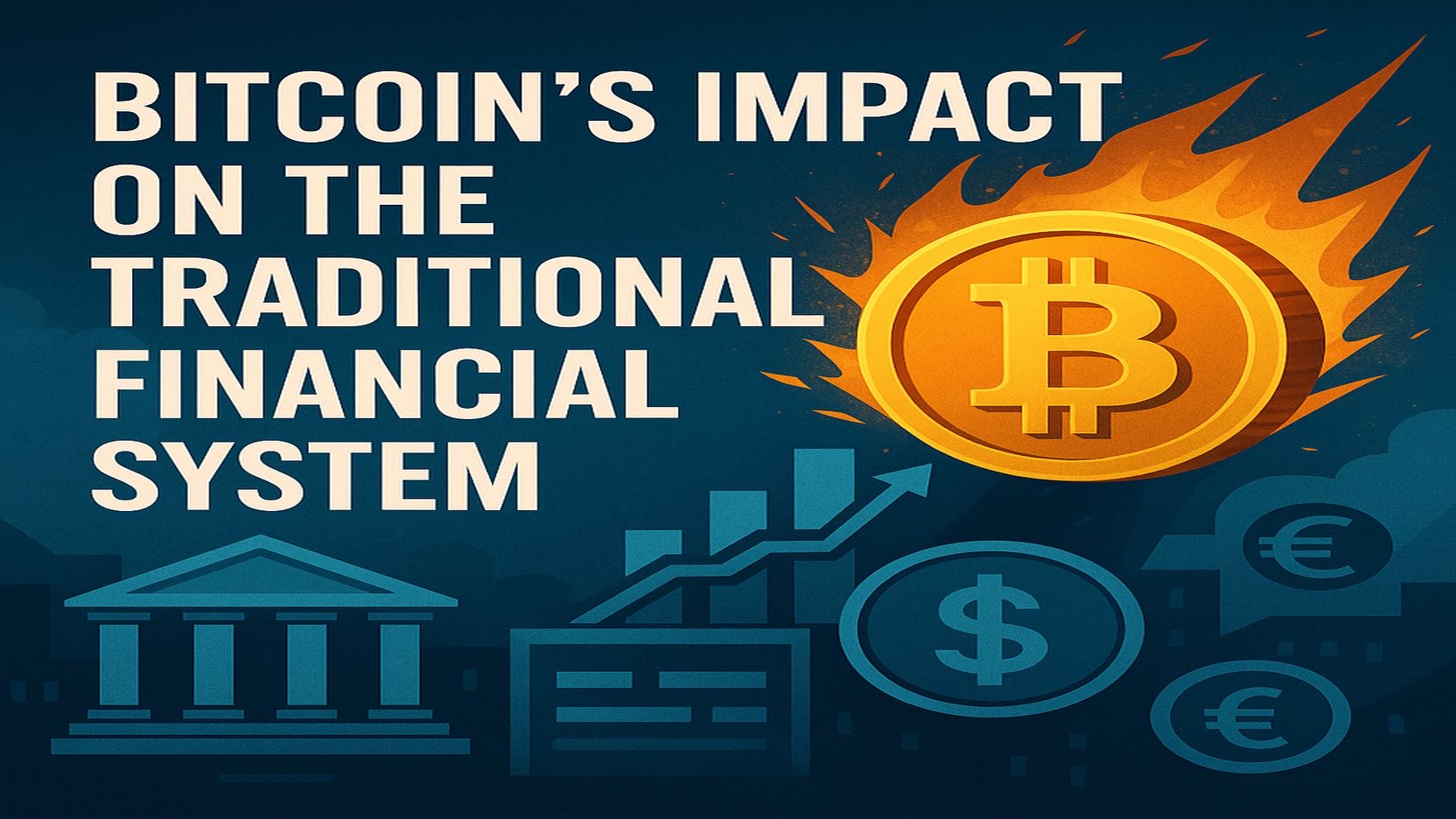How Bitcoin Is Reshaping the Global Financial System

 How Bitcoin Is Reshaping the Global Financial System
How Bitcoin Is Reshaping the Global Financial System
Bitcoin isn’t just a buzzword—it’s fueling a transformative shift in how traditional financial institutions operate. From central banks to investment giants and retail banks, BTC is challenging long-standing norms and prompting a full-spectrum rethink of financial infrastructure.
1. Institutional Integration: ETFs, Reserves & Corporate Adoption
ETF boom: With U.S. and European regulators approving Bitcoin ETFs, institutional investors now have clear, regulated pathways to BTC exposure. BlackRock’s IBIT ETF alone amassed $57.5 billion by early 2024. Government reserves: The U.S. launched a Strategic Bitcoin Reserve in 2025, holding 200,000+ BTC from legal forfeitures. Other countries are exploring similar holdings. Corporate treasuries: Major banks like JPMorgan and BBVA now offer BTC access via wealth management services, integrating crypto into mainstream finance.
2. Banks & Crypto: Cautious Yet Accelerating
Traditional banks are entering the crypto space cautiously—launching pilot programs for trading desks, custody services, and stablecoin experiments. Regulatory shifts like the SEC’s rollback of SAB 121 are helping accelerate this process.Still, challenges remain: only a handful of firms (e.g., Paxos, Circle) have secured full digital bank licenses.
3. Bitcoin as Digital Gold—or Risky Asset?
Bitcoin is often called “digital gold” due to its scarcity and decentralized nature. However, its price behavior often mirrors tech stocks, with increased correlation during volatile periods. It may act as a hedge—but it’s still a speculative asset to many investors.
4. Rise of DeFi on Bitcoin
The 2025 Bitcoin Conference showcased a growing DeFi ecosystem built on Bitcoin. Platforms like Liquid and Stacks are enabling smart contracts, staking, and decentralized lending. Bitcoin is evolving from a static store of value to a programmable financial layer.
5. Regulatory Crossroads
Governments worldwide are stepping up regulation:
- U.S. aims to pass full crypto legislation by 2026.
- EU’s MiCA framework is pushing banks like BBVA to offer crypto to retail clients.
- Australia’s central bank warned of possible financial contagion if crypto is mismanaged at scale.
6. Banking Millennium: Crypto-Banking Emerges
Crypto-native banks offering digital custody, lending, and stablecoins are gaining traction. Traditional banks are responding—either by launching competing services or forming alliances with fintech startups.
Conclusion
Bitcoin’s influence goes far beyond P2P transactions. It’s reshaping:
- Investment portfolios via ETFs and sovereign reserves
- Retail banking services through crypto integration
- Financial infrastructure via DeFi and smart contracts
- Regulatory frameworks under global review
The legacy system is adapting. Bitcoin isn’t replacing traditional finance—it’s modernizing it.
Next steps? Stay informed. Evaluate ETF options. Follow key legislation. Explore the DeFi-Bitcoin link. The future of finance is being written now—and Bitcoin is at the center.

 Bitcoin
Bitcoin
 Dogecoin
Dogecoin
 Aleo
Aleo
 Kaspa
Kaspa
 ALPH
ALPH
 ETC
ETC
 CKB
CKB
 Kadena
Kadena
 Nexa
Nexa
 Dash
Dash

